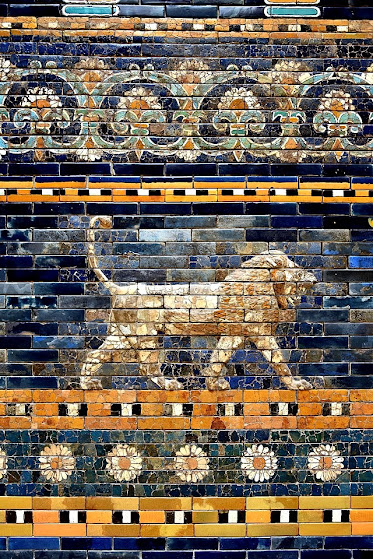Lunar New Year
Image courtesy Wikimedia CommonsLunar New Year is also known as Chinese New Year, or Spring Festival. It is the most important festival in China but is also celebrated in Vietnam, South Korea, Indonesia, Malaysia, Singapore, and other countries with a significant Chinese population.
Lunar New
Year falls on the second new moon following the winter solstice and therefore begins
on a different date each year. This year, 2025, it began on 29th January.
Celebrations will continue until the fifteenth day, when the Lantern Festival
is held.
There are twelve animals associated with the zodiac, and 2025 ushered in the Year of the Wood Snake, the first such for sixty years. The four other zodiacal snakes are Fire, Earth, Metal, and Water.
The snake is revered for its intelligence and mystery. The Wood element signifies growth, passion, tolerance, and renewal.
Snakes are interesting creatures, found on every continent except Antarctica. They are absent from Greenland, Ireland, Iceland, and New Zealand, and from many smaller Atlantic and Pacific islands.
Not all snakes live on land. There are sixty-nine species of sea snakes, most of which are venomous, and three freshwater snake species. By contrast, most land snakes are non-venomous, killing their prey by constriction or simply swallowing it live.
Snakes have no eyelids or external ears. They sense sound through vibrations on the ground or in the air, and use their tongues to ‘taste’ the environment.
Snakes evolved from lizards about 150 million years ago. Some species, boas, and pythons, for example, retain vestigial limbs in the form of small claws either side of the vent, near the end of the tail.
Time has adapted the snake’s anatomy to accommodate its slender body. In the case of paired organs, like kidneys, these are elongated and situated in tandem. Many snakes have just one lung. A snake’s shape allows it to slither along many different surfaces and its flexible skin is covered in scales, which grip as it moves along.
Colourful processions for Chinese New Year will include a dragon or lion dance and red will feature in decorations, as red is considered lucky.
This, from
Wikipedia:
According to legend, Chinese New Year started with a mythical
beast called the Nian (a beast that lives under the sea or in the
mountains) during the annual Spring Festival. The Nian would eat villagers,
especially children in the middle of the night.
One year, all the villagers decided to hide
from the beast. An older man appeared before the villagers went into hiding and
said that he would stay the night and would get revenge on the Nian. The old
man put up red papers and set off firecrackers.
The day after, the villagers came back to their
town and saw that nothing had been destroyed. They assumed that the old man was
a deity who came to save them. The villagers then understood that Yanhuang had
discovered that the Nian was afraid of the colour red and loud noises.
(Yanhuang or Yan Huang is the name of a mythical
ethnic group of ancient China who were said to have inhabited the Yellow River basin area. They claimed their descent from
the two tribes led by the Flame Emperor (Yandi) and Yellow Emperor (Huangdi).[1] Their main achievement was to join to
strengthen the basis of the two tribes and their civilized community. The
Yanhuang are considered to be the founders of the Chinese people and the initiators of Chinese culture.)
The tradition grew as New Year approached, and
the villagers would wear red clothes, hang red lanterns, and red spring scrolls
on windows and doors, and use firecrackers and drums to frighten away the Nian.
From then on, the Nian never came to the village again. The Nian was eventually
captured by Hongjun Laozu,
an ancient Taoist monk.







_(titel_op_object)_Actualiteiten_(serietitel)_Actualit%C3%A9s_(serietitel_op_object),_RP-P-1955-466.jpg)



















